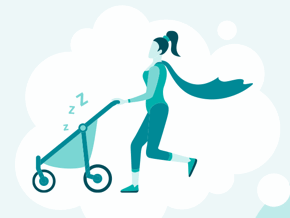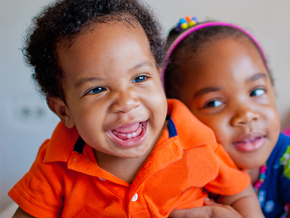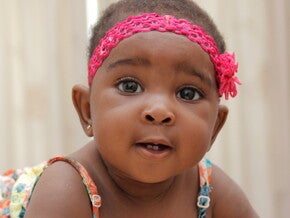
Emotional Roller Coaster
After all the excitement of planning for the baby picking names, choosing little outfits and packing all the essentials for delivery, most new parents are caught completely off guard by the harsh reality of the full parenting experience. Checklists may cover what supplies to buy and how to baby proof the home, but they don’t tell you how to deal with your feelings or exhaustion when the baby won’t settle or sleep.
After all the excitement of planning for the baby picking names, choosing little outfits and packing all the essentials for delivery, most new parents are caught completely off guard by the harsh reality of the full parenting experience. Checklists may cover what supplies to buy and how to baby proof the home, but they don’t tell you how to deal with your feelings or exhaustion when the baby won’t settle or sleep.
How to manuals or the advice of a paediatrician may offer some assistance, but even in the best of cases parents still report being utterly overwhelmed by their beloved, yet endlessly unpredictable, new baby.
New parents are often forced to make compromises they never saw coming. A baby has its own unique needs and personality right from the start, and parents often struggle to adapt. Even in the most parent and baby-friendly countries with all the resources they have at their disposal, parents across the board find themselves uninformed or misinformed about what to expect—or that even with a plan, things rarely go as expected.
Surprises pop up right from the start. After the birth and bringing baby home, parents are often in shock at the constant needs of a newborn. With no way of communicating what he or she needs, troubleshooting an upset baby becomes a never-ending game of trial and error. This can be daunting for new parents who may have read up on challenging situations or have reached out to friends or family for advice but are still struggling to find what works.
The physical demands coupled with exhaustion can bring an emotional turbulence more extreme than anything parents could have imagined, affecting all aspects of their lives—from their relationship with one another, to friends and family and even work.
In cultures that parents describe as being quite tradition-bound like Nigeria, Romania and China, parents also say they’ve had to make many compromises after the baby arrived. They say that they found parenting to be much more difficult than expected and that they were ill prepared for the full experience. While parents everywhere experience this new parenting roller coaster, for these parents in particular there could be additional pressure in wishing to honor past practices and tradition while trying to adopt a more modern approach to parenting.
New parents in more progressive cultures, on the other hand, like the US, the UK and Chile, have said that their new lives as parents were more in line with their expectations. This could be due to a number of factors from managing daily stress through shared responsibilities, to being able to “tweak” their parenting model as they go rather than adhere to a strict cultural norm.
One universal truth among parents of all cultures is that those with strong family ties tend to fare the best when it comes to confronting new realities. This goes to show how important a kind word or a shared story can be to a new parent proof that others have gone through the same trials and tribulations and made it to the other side, stronger and wiser than they ever would have imagined. Luckily, today “family” can be defined however one sees fit – whether that’s extended family, a core group of friends, or a “work family” – all of these can make a new parent feel wrapped with immense love and support.
Discover the findings from our Parenting Index 2021 study www.theparentingindex.com


















